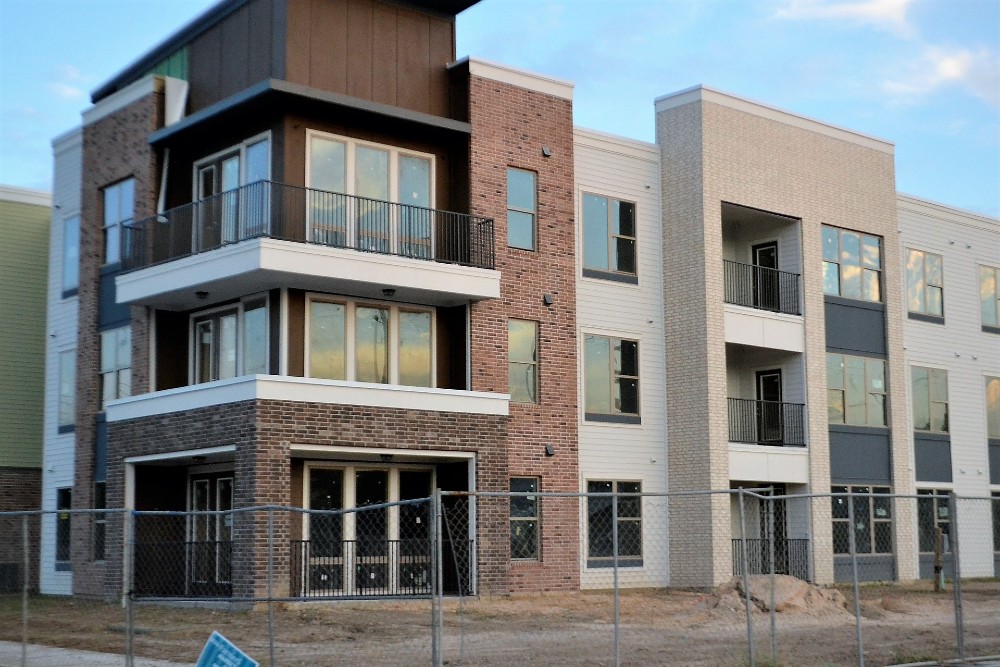A quick summary
Looking for an alternative solution to traditional loans for your real estate investing projects? Loans from hard money lenders may the best option for you, with their flexible loan terms, easier approval process and quick access to funds.
Table of Contents
Real estate investing and hard money loans go hand in hand. Many investors choose this option instead of using a loan from a bank or other institution for many reasons that we’ll outline below. While you may have heard of hard money loans before, do you know how to use hard money lenders? Let’s dive into this topic a little more.

What is a hard money lender?
A hard money lender is a non-traditional or private lender which uses unconventional methods to extend credit to borrowers. These lenders usually provide short-term loans to individuals or investors who are purchasing real estate, whether it be residential or commercial real estate, or land. The value of the property is a big factor in determining the lending standards for hard money lenders, and the property is used a collateral for the loan.
How do hard money loans work?
Hard money loans are an alternative financing solution for individuals or investors who wish to make a real estate purchase without using a traditional loan. The funds will then come from lenders who will use the property as collateral for the loan, in other words if the borrower can no longer make the payment, the property can be used as payment.
Unlike traditional loans, hard money loans are easier to qualify for because the lending criteria are not as stringent as banks, for example. Which means that people who have a low credit score or a high debt-to-income ratio have a better chance at being approved for a hard money loan than a traditional loan.
Hard money loans are usually short-term loans that last anywhere between 1 and 3 years. They can be approved and paid out in a matter of days sometimes, so they’re a good solution for investors who need money quickly to act fast on a property deal. Hard money loans typically have higher interest rates than traditional loans, which means that a short loan is a better idea as well.
Hard money lenders are more flexible than traditional lenders, which means that borrowers can tweak their repayments and the loan terms to suit their needs, provided that the borrower agrees. This makes a lot of sense for real estate investors who are looking for a loan that best suits their specific needs.

The 7 main uses of a Hard Money Loan
1. House Flipping Loans
House flipping involves buying a house, renovating it and selling it again for more than it was bought for. House flipping investors often need funds for the purchase of the house itself, as well as the renovations. House flipping projects have a quick turnaround time, which means that investors doing house flips usually need access to funds quickly.
Here’s where hard money loans come in. They offer these investors quick access to a loan which will be paid back in a short period of time, as soon as the house is sold. Often, the repairs will also be funded so that the lender can ensure that the project is complete, and the borrower doesn’t run out of money before it’s done.
2. Investment Property Loans
One of the biggest avenues of real estate investing are investment properties. This is a property which investors purchase with the aim of renting out. Hard money loans for rental properties are a good solution for this because they can offer more money than a traditional institution. For example, if an investor wants to purchase a multi-family property or apartment building to rent out, a hard money loan would be a quick way to get access to the extra funds that will be needed for such a large purchase.
3. Refinancing A Property
Homeowners who are in foreclosure or need to refinance a property for any other reason can turn to hard money lenders. A hard money loan can be used to pay off the primary loan with another lender, by refinancing the home. Which gives homeowners the chance to get their credit back on track or sell the property to get out of a financial predicament.
4. Renovating A Property
For those taking out a hard money loan for house flipping, it’s important to note that certain renovations and repairs will be covered by the loan, however labor and materials will need to be paid for upfront and then claimed back from the hard money lender later. Once a hard money lender has approved a deal, the borrower and lender need to agree on a renovation draw schedule, which is basically a list of the repairs and renovations that need to be done. This happens in phases, and each time a draw is complete an inspector will need to check the work.
5. Fix & Flip strategy
When it comes to fixing and flipping a house, hard money loans offer investors the chance to get funding both for the purchase and the renovation of the house. The amount that the lender will offer the borrower depends on the after-repair value (ARV) of the house. You can borrow up to 70% of the ARV, which means that if you find a house that costs $80,000 but the ARV is $160,000, you will be able to borrow $112,000.
6. Fix & Rent strategy
For investors who are borrowing money to fix and rent a property, a similar concept applies when it comes to hard money loans. These are financed much the same way, and hard money loans can be a great solution for investors who’ve found a good deal and need money quickly.
7. Hard Money Construction Loans
Hard money loans can be used to finance the construction of a real estate project, the idea is for builders to be able to complete their projects using these loans. Part of the loan is used to purchase the property and the balance is held back and given in smaller amounts as it is needed over the course of the project. Hard money loans are an easier way for developers to get started on their project quickly and meet any tight deadlines.

Biggest risks of hard money lending
Hard money lending, while easier and more convenient for investors than traditional loans, also has its drawbacks.
- Higher interest rates: Hard money loans generally have higher interest rates than traditional loans and sometimes you’ll have to pay the closing costs yourself as hard money loans don’t always cover these. Hard money lenders can charge interest rates anywhere between 6% and 13%, depending on the amount of risk involved. The risk varies depending on the investor’s track record and financial situation, and the deal itself.
- Fees: Hard money lenders charge various fees to the borrower, such as broker fee, application fee, underwriting fee, document preparation fee, funding fee and so on. These are another cost that the borrower will need to account for.
- Higher origination costs: Origination costs are an extra cost that come with borrowing from a hard money lender. These can be between 1% and 3%.
- Down payments: Hard money lenders sometimes ask for down payments of 25% to 35% which is a large extra cost.
- Short loan period: This can be a drawback if things don’t go according to plan with your project. Any delays can jeopardize your loan because you may get delayed with the sale of a fix and flip property, for example, which would render you unable to pay back your loan on time.
- Property as collateral: Taking a short-term loan where your property is the collateral is risky if you’re unable to pay the loan back in time or you default on your payments. Having the property as collateral means that the lender can take the property and sell it, if you’re unable to make your repayments.
- Track record: Some hard money lenders prefer to see a track record of previous successful house flips from investors, to minimize the risk of lending to them. So, if it’s your first fix and flip project, you’ll need to look for a hard money lender who is willing to take you on without a track record.

Final thoughts: Should you use a hard money lender?
Using a hard money lender can be a great alternative solution for real estate investors who need quick access to funds. However, the higher costs, interest rates and larger risk, are important things to consider when making your choice.
Borrowers who have completed a few deals before have a higher chance of getting a hard money loan, and investors with more experience will be considered a lower risk because they know how to get deals done quickly and make their money back in time to pay the loan back. It can be harder for first time investors to get hard money loans because lenders have no idea if they will be able to manage the project and ensure it’s success.
If you decide you’d like to try out a hard money lender, make sure that they’re a reputable lender with good reviews, such as New Silver. Not all hard money lenders have very high interest rates, so do your homework to see which lender has an interest rate and loan terms that work for your purposes.

